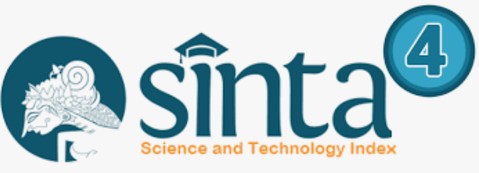CORPORATE SOCIAL RESPONSIBILITY BASED OF SHARIA AGROPENEURS FOR WOMEN’S EMPOWERMENT AND CHILD-FRIENDLY
DOI:
https://doi.org/10.36085/jamekis.v8i2.7932Abstrak
The research conducted aims to investigate the practice of corporate social responsibility (CSR) based on sharia agropreneurs for women and child-friendly. The location of the research is at PT. Tanah Harapan Wisata Alam (Hopeland Camp), Bogor. The research method used is a qualitative method with data collection through observation, interviews, and literature studies related to agropreneurs, sharia principles in business, and CSR practices. The findings reveal that the CSR model based on sharia agropreneurship can provide positive and beneficial impacts from the social and industrial aspects of agropreneurship. The principles of Islamic business carried out in this model are expected to have implications for women's empowerment and child-friendly. So that they can think creatively, and imaginatively, and can see business opportunities that are by Islamic teachings. They are also expected to be able to answer the challenges of the future of agriculture through the model developed
Referensi
Altin, D., Nurazi, R., & Saiful, F. S. Efek Ceo Overconfidence Terhadap Pengambilan Risiko Likuiditas Bank Komersil Di Indonesia. Jurnal Ilmiah Akuntansi, Manajemen dan Ekonomi Islam (JAM-EKIS), 5(1), 1-14.
Aziz, Ikbal Mahadi., Khair, Ummul. (2023). Analysis Of The Application Of Balanced Scorecard To The Performance Of Micro Small Medium Enterprises Enggal Furniture Industry. Jurnal Ilmiah Akuntansi, Manajemen dan Ekonomi Islam (JAM-EKIS), 6(2), 229-241.
Aziz, M. R. A., & Yusoff, M. M. (2019). Model for Financing Agro Projects in Islamic Banking Institutions. Journal of Islamic Banking & Finance, 36(3), 39. https://openurl.ebsco.com/EPDB%3Agcd%3A6%3A15741638/detailv2?sid=ebsco%3Aplink%3Ascholar&id=ebsco%3Agcd%3A139154098&crl=c
Filho, L., W, Lovren, VO, W., M, Salvia, A., & Frankenberger, F. (2021). Poverty: A central barrier to the implementation of the UN Sustainable Development Goals. Environmental Science and Policy, 125(3), 96–104. https://doi.org/https://doi.org/10.1016/j.envsci.2021.08.020
Finthariasari, M., Febriansyah, E., & Pramadeka, K. (2020). Corporate Social Responsibility Disclosure: A Determinant Analysis (Case Study Manufacturing Companies Listed on the Indonesia Stock Exchange). International Journal of Trends in Accounting Research, 1(1), 022-036.
Handayani, R., Kurnia, F., & Priyansah, S. (2022). Empowerment of women farming group of Ketapang village through black turmeric agropreneur. Community Empowerment, 7(5), 823–829. https://doi.org/10.31603/ce.6334
Jaafar, M., Jalali, A., Suffarruddin, S. H., & Ramasamy, N. (2023). The Determinants of Becoming Sustainable Agropreneurs: Evidence from the Bottom 40 Groups in Malaysia. Sustainability (Switzerland), 15(10), 1–16. https://doi.org/10.3390/su15108283
Jansson, M., Herbert, E., Zalar, A., & Johansson, M. (2022). Child-Friendly Environments—What, How and by Whom? Sustainability (Switzerland), 14(8), 1–26. https://doi.org/10.3390/su14084852
Kabeer, N. (2005). Gender equality and women’s empowerment: A critical analysis of the third Millennium Development Goal. Gender and Development, 13(1), 13–24. https://doi.org/10.1080/13552070512331332273
Kabeer, N. (2021). Gender equality, inclusive growth, and labour markets. Women’s Economic Empowerment: Insights from Africa and South Asia, 44(0), 13–48. https://doi.org/10.4324/9781003141938-3
Mariatun, B., & Rizka, M. A. (2019). Pemberdayaan Masyarakat Berbasis Agropreneur dalam Mengatasi Pengangguran di Desa Gerupuk Kabupaten Lombok Tengah. Jurnal Kependidikan: Jurnal Hasil Penelitian Dan Kajian Kepustakaan Di Bidang Pendidikan, Pengajaran Dan Pembelajaran, 5(1), 8. https://doi.org/10.33394/jk.v5i1.1387
Martodiryo, S., & Rahmatullah, M. (2022). The Evaluation of Children Friendly School’s Programs towards Banjarmasin as a Children Friendly City. Interdisciplinary Social Studies, 2(3), 1706–1714. https://doi.org/10.55324/iss.v2i3.358
Mohd Aris, N., P.Rameli, M. F., Sharif, D., Mohd Adnan, S. D., Md Nasir, M. F., & Abas, S. A. (2021). Empowering Asnaf Agropreneurs Through Economic Development Programs by Selected Zakat Institutions. International Journal of Academic Research in Business and Social Sciences, 11(11), 963 – 972. https://doi.org/10.6007/ijarbss/v11-i11/11587
Mosedale, S. (2005). Assessing women’s empowerment: Towards a conceptual framework. Journal of International Development, 17(2), 243–257. https://doi.org/10.1002/jid.1212
Prakoso, Agung Suryo, Sudarmiatin, Hermawan, & Agus. (2022). Marketing As A Mediator Variable For Human Resources To The Performance Of Agroprenerur MSMES. International Journal Of Humanities Education and Social Sciences (IJHESS), 2(3), 866–873. https://doi.org/10.55227/ijhess.v2i3.317
Ra, S., Ahmed, M., & Teng, P. S. (2019). Creating high-tech ‘agropreneurs’ through education and skills development. International Journal of Training Research, 17(sup1), 41–53. https://doi.org/10.1080/14480220.2019.1629736
Rahim, M. F. A., Ong, J. W., Yatim, N. M., Yanan, H. A., & Nizat, M. N. M. (2020). Customer journey maps of Muslim young agropreneurs. In Understanding Digital Industry. Routledge, Taylor & Francis Group. https://doi.org/10.1201/9780367814557-84
Riggio, E. (2002). Child friendly cities: Good governance in the best interests of the child. Environment and Urbanization, 14(2), 45–58. https://doi.org/10.1177/095624780201400204
Routray, P., Torondel, B., Clasen, T., & Schmidt, W. P. (2017). Women’s role in sanitation decision making in rural coastal Odisha, India. PLoS ONE, 12(5), 1–17. https://doi.org/10.1371/journal.pone.0178042
Sachanovrissa, S., & Finthariasari, M. Models Development Saving Account Have Innovation, Case Study In Bank Bengkulu. THE 2 ND INTERNASIONAL SEMINAR AND CALL FOR PAPER.
Sukumar, G., John, M. S., & Kuttalam, M. (2020). Role of Women Entrepreneurship In Agriculture - A Case of Agropreneur. SSRN Electronic Journal, 1, 8954–8960. https://doi.org/10.2139/ssrn.3531611
Sumardi, S., Setiawan, E., Rachmina, R., Hidayatullah, T., & Fanani, I. Al. (2024). Pelatihan Agroteknopreneur Pada Masyarakat Desa di Provinsi Sulawesi Selatan. Jurnal Pengabdian Sosial, 1(4), 228–233. https://doi.org/10.59837/yy772924
Susanti, R., & Nirmalawati, W. (2023). The Influence of The Child-Friendly District Program on The Fulfillment of Children’s Rights in Banyumas District. Proceedings Series on Social Sciences & Humanities, 14(3), 27–30. https://doi.org/10.30595/pssh.v14i.912
Tabrani, A. (2021). Initiating Agropreneurship From an Islamic. International Conference on Syariah & Law 2021, April, 36–49.
World Vision International. (2014). Child Protection Theory of Change. World Vision International. https://doi.org/10.1093/acprof:oso/9780195129076.003.0011
Yusoff, A., Ahmad, N. H., & Halim, H. A. (2016). Tailoring future agropreneurs: The impact of academic institutional variables on entrepreneurial drive and intentions. Journal of Entrepreneurship Education, 19(2), 156–182.
Zainol, F. A., Ngah, N., Wan Daud, W. N., & Aik, C. K. (2021). Establishing a Graduate Agropreneur Business Model for Food Security: A Case Study of the Melon Manis Terengganu (MMT) Fertigation Project. The Journal of Management Theory and Practice (JMTP), 2(1), 30–37. https://doi.org/10.37231/jmtp.2021.2.1.88







